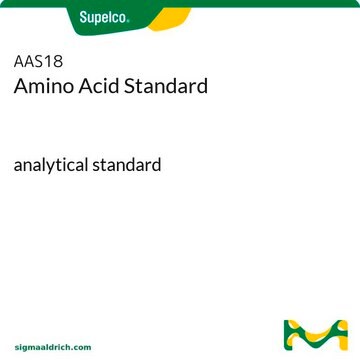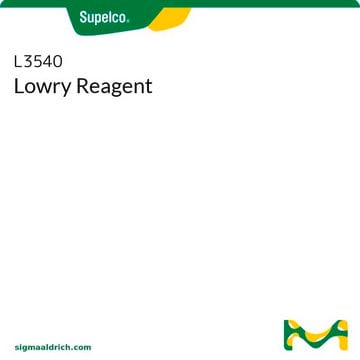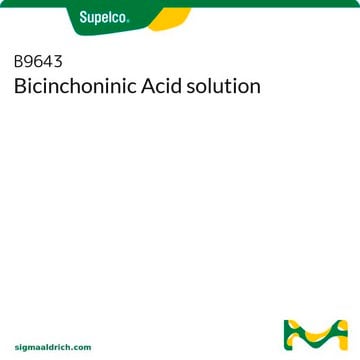B6916
Bradford Reagent
for 0.1-1.4 mg/ml protein
Synonym(s):
Coomassie dye binding protein assay, Coomassie dye binding protein assay, Protein dye reagent, Protein dye reagent
About This Item
Recommended Products
Related Categories
General description
Application
Features and Benefits
- The reagent is ready to use. No mixing or dilution required.
- Color development is rapid. Only a five minute incubation and then the sample is read a 595 nm.
- Reducing sugars and reducing substances along with thiols do not interfere with this reagent.
- Reagent is suitable for micro (1-10 μg/ml) and standard (50-1400 μg/ml) assays.
- Can be used in microwell plate assays.
- Inexpensive assay.
Legal Information
Application
also commonly purchased with this product
related product
Signal Word
Warning
Hazard Statements
Precautionary Statements
Hazard Classifications
Eye Irrit. 2 - Met. Corr. 1 - Skin Irrit. 2 - STOT SE 2
Target Organs
Eyes,Central nervous system
Storage Class Code
8B - Non-combustible corrosive hazardous materials
WGK
WGK 1
Flash Point(F)
Not applicable
Flash Point(C)
Not applicable
Certificates of Analysis (COA)
Search for Certificates of Analysis (COA) by entering the products Lot/Batch Number. Lot and Batch Numbers can be found on a product’s label following the words ‘Lot’ or ‘Batch’.
Already Own This Product?
Find documentation for the products that you have recently purchased in the Document Library.
Customers Also Viewed
Protocols
To determine protein content, the Warburg-Christian method refers to measuring protein samples at 280 nm using a spectrophotometer.
To determine protein content, the Warburg-Christian method refers to measuring protein samples at 280 nm using a spectrophotometer.
To determine protein content, the Warburg-Christian method refers to measuring protein samples at 280 nm using a spectrophotometer.
To determine protein content, the Warburg-Christian method refers to measuring protein samples at 280 nm using a spectrophotometer.
Related Content
Protein quantification methods, reagents, and immunoassay technology for accurately measuring the protein concentrations in a variety of samples.
Protein quantification methods, reagents, and immunoassay technology for accurately measuring the protein concentrations in a variety of samples.
Protein quantification methods, reagents, and immunoassay technology for accurately measuring the protein concentrations in a variety of samples.
Products for traditional and alternative protein quantitation techniques available, including BCA, Bradford, Lowry, and more.
Our team of scientists has experience in all areas of research including Life Science, Material Science, Chemical Synthesis, Chromatography, Analytical and many others.
Contact Technical Service













